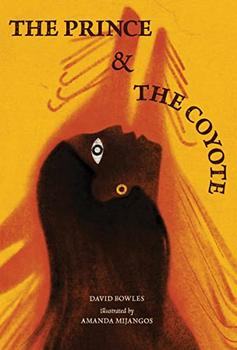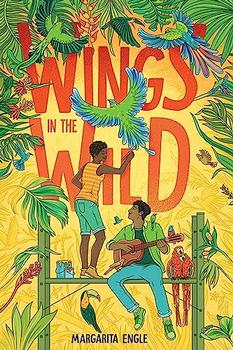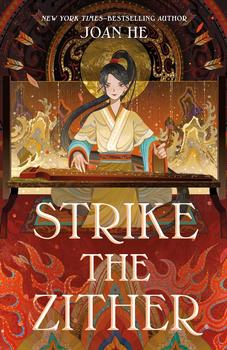Summary | Excerpt | Reviews | Beyond the book | Read-Alikes | Genres & Themes | Author Bio

At fifteen, Crown Prince Acolmiztli is preparing to enter the calmecac, the temple school that will prepare him to rule the Acolhua people. However, his time there is cut off abruptly after only a few months, when war threatens his beloved capital city of Tetzcoco. David Bowles' young adult novel The Prince and the Coyote follows Acolmiztli's journey from young prince, to hunted refugee, to revered king.
Acolmiztli was a real historic figure, better known today as Nezahualcoyotl, the name he used as ruler of Tetzcoco. He was a celebrated warrior, architect, and poet, as well as part of the Triple Alliance that became the Aztec Empire. Bowles is wonderful at bringing his perspective to life. The world in which Acolmiztli lives is integral to the book's fast-paced, exciting plot, from the religion that guides him, to the complicated interplay between family and political ties, to the class divide between the main character and many of the people he meets while on the run.
The politics shown in the novel are especially fascinating. The story is full of uncertainty and betrayal, with Acolmiztli acting as both victim and conspirator in various plots. The nature of his aristocratic society means that many of the enemies he faces are family members—a treacherous grandfather, bitter half-siblings, and power-hungry uncles. While the ethics of this society aren't explored in much depth, I didn't think this was a flaw in the narrative, as the book seems explicitly intended to be a fictionalization of Acolmiztli's life from his point of view, giving the reader a glimpse into a particular historical time and mindset. The power games come with a heavy cost, both to Acolmiztli personally and to the city he loves. Over the course of the story, he must compromise and sacrifice in order to stay alive and protect his people. Often, he is unable to do both.
This intrigue contrasts with Acolmiztli's deep and genuine love for his immediate family. His grief at the death of his father is heart-wrenching, as is his fear for his mother and younger siblings. Bowles shows the horror of the coup that overthrows Acolmiztli's father, and the healing he finds in connecting with a farming family that take him in as an unknown refugee. Later, readers see his devotion to his sons and determination to regain his homeland.
The ways in which the book handles internal and interpersonal conflicts unrelated to the war are sometimes less satisfying. Acolmiztli seems to be naturally good at everything. Given the historical figure's accomplishments, there is some justification for this, but making these the result of natural genius and glossing over the work and study that likely went into them lessens their impact. The beginning of the story sets up combat as something he finds difficult, but a few words of advice from a teacher give him a breakthrough early on, and from then on he is regarded as an incredible warrior without any additional effort shown. Despite his time learning in the wilderness and in hiding being important sections of the plot, he does not struggle enough for his personal growth to be convincing. Similarly, Bowles sets up conflict between Acolmiztli's two main romantic interests that never really comes to fruition—instead they seem to simply get over their jealousy off the page.
While these elements can be frustrating, The Prince and the Coyote is still a page-turner, with a thrilling plot augmented occasionally by compelling verse and Amanda Mijangos' beautiful illustrations. The poetry is especially effective in emotional moments, such as the death of Acolmiztli's father:
Between combustion
and shattering,
I find myself beside
the river, reaching
into the cold current
to pull my father free.
I would highly recommend The Prince and the Coyote to readers interested in an action-filled novel deeply rooted in pre-Columbian Mexico.
![]() This review
first ran in the November 15, 2023
issue of BookBrowse Recommends.
This review
first ran in the November 15, 2023
issue of BookBrowse Recommends.

If you liked The Prince and the Coyote, try these:

by Margarita Engle
Published 2024
This gorgeously romantic contemporary novel-in-verse from award-winning author Margarita Engle tells the inspiring love story of two teens fighting for climate action and human rights.

by Joan He
Published 2024
A dazzling new fantasy from New York Times and Indie bestselling author Joan He, Strike the Zither is a powerful, inventive, and sweeping fantasy that reimagines the Chinese classic tale of the Three Kingdoms.
Courage - a perfect sensibility of the measure of danger, and a mental willingness to endure it.
Click Here to find out who said this, as well as discovering other famous literary quotes!
Your guide toexceptional books
BookBrowse seeks out and recommends the best in contemporary fiction and nonfiction—books that not only engage and entertain but also deepen our understanding of ourselves and the world around us.